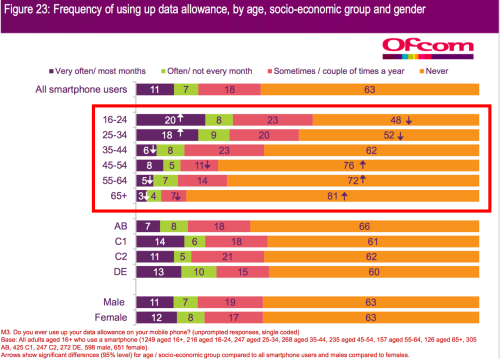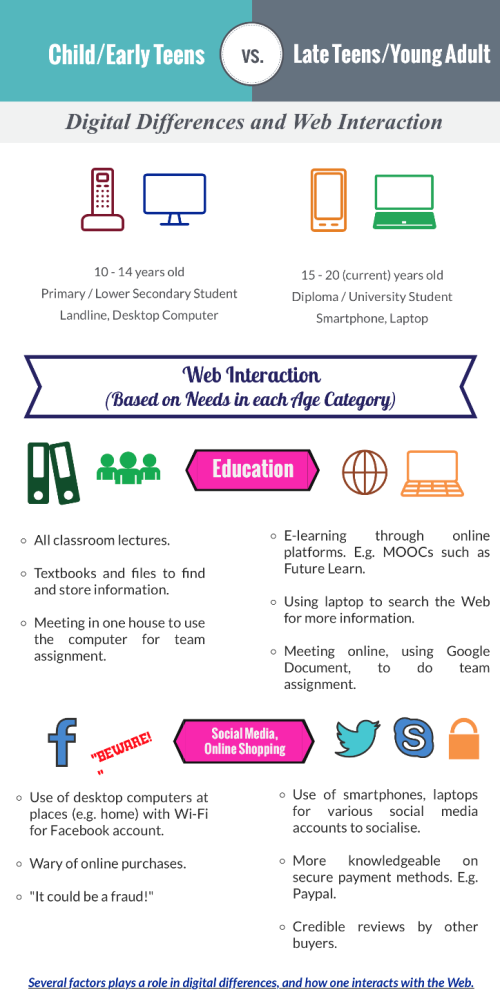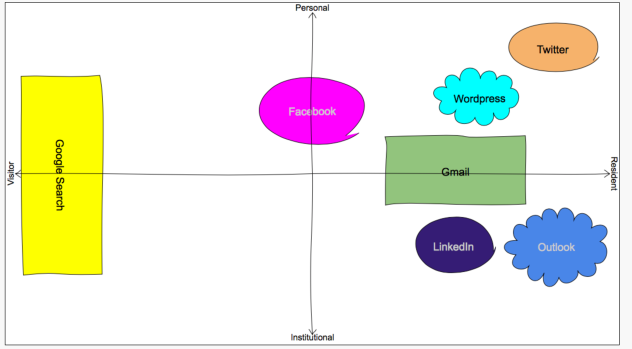This is what I can say after going through the module, Living and Working on the Web:
MANG2049 has changed my life. I have gained so much more knowledge and skills as compared to before taking up this module.
All the posts, reflections and comments in this blog are proof of what I’ve gained from this module.
A Twitter account was created, alongside this blog. This account is used to update my followers whenever a new post is published. It also serves as a sort of discussion forum, as questions would be asked through the hashtag, #MANG2049. Even if I was not the one asking questions, I would still be able to learn more just by going through the hashtag.
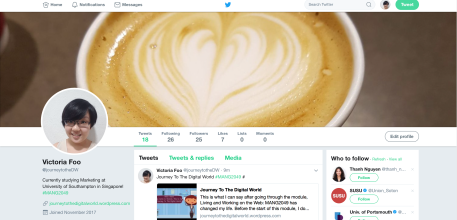
Twitter Profile: https://twitter.com/journeytotheDW
I believe both the blog and Twitter account would extend the social media platforms I can use for my professional network.
Moving onto LinkedIn, before the start of this module, I do have some knowledge on the various topics that were covered over the past two-three weeks. In this case, I understand the need to separate personal and professional networks and so a few years ago, I have already created LinkedIn as my professional profile.
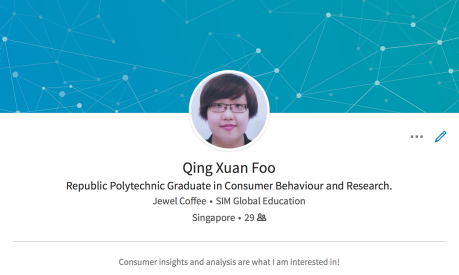
LinkedIn Profile: http://www.linkedin.com/in/qing-xuan-foo-a420aa12b
Just like what Ming has mentioned in her comments once, it is wise to update one’s online profile whenever any accomplishment or achievement has been done. This was, and still is, the case for my LinkedIn profile.
Now, what exactly has changed for me? Let us take a look at the video below!
One of the biggest difference is definitely how I was unable to, or rather, no confidence in myself when it comes to, creating visuals. Since the first post, I have been able to produce infographics and videos. Which is definitely a long way as compared to before module! This has definitely boosted my self-confidence.
Another difference would be evaluating information. My diploma education has taught me to go beyond just the surface value. Verify against a credible source, such as government bodies providing official statistics for the country, or results from recognised research projects, before using it in my own research.
Through various forms of discussions during the course of this module, it has come to my attention that:
Not all credible sources are reliable, and not all unreliable sources are entirely not credible.
In my previous post, I have written how a discussion on FutureLearn has changed my view.
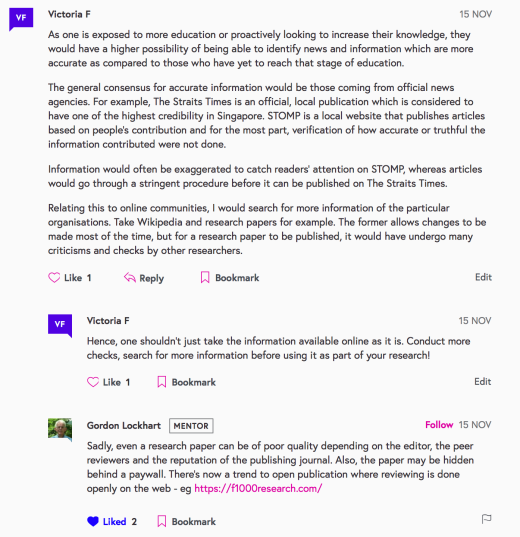
A comment made by Lockhart, one of the mentors from the FutureLearn programme, mentioned how research papers, generally known to be more credible as compared to Wikipedia since they are published, can also be of poor quality, based on several factors. This is also one reason why as a student, and researcher, it is important for me to learn about this.
Take a look at this video here.
From the video, it shows how posts can go viral in a matter of seconds, with or without being verified. If not for this module, I wouldn’t have known that with each click I made to share a post, I could be contributing to the world of fake news. Even if I was misinformed, even if my intention was to educate and warn my family and friends, I could have ended up hurting people that I don’t know about.
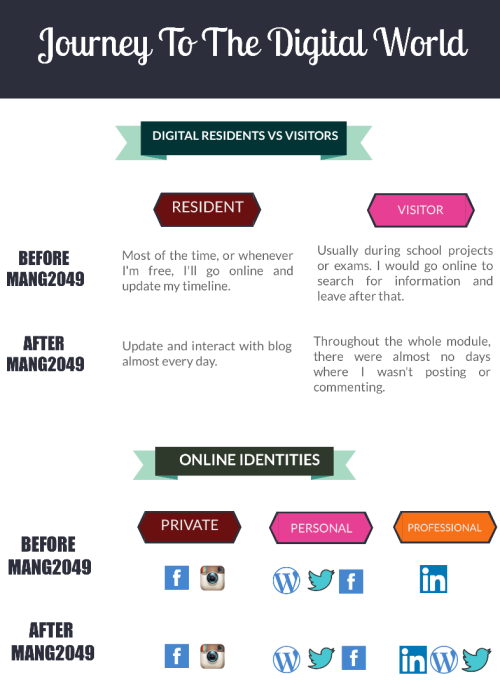
Source: Self-Produced via Visme, 29 Nov 2017
Throughout MANG2049, all the topics are linked together. For example, someone with multiple online identities would definitely have a huge digital difference as compared to someone with just a single identity. One example could be the former being a digital resident, and the latter a visitor. With more identities, one must constantly update each and every profile, and not neglect them. Being well-versed in both digital and critical literacy would definitely prove to be useful as it can help one to avoid being misinformed and shared fake news.
Having experienced first hand on how useful MOOcs can be, it is definitely an explorable option when it comes to furthering one’s skills, digital or not. This module itself, has taught me how to assess and evaluate online information, how to protect one’s self and paths to explore when it comes to the future status of recruitment, etc.
Using what I’ve learned, I would definitely think very carefully before sharing any information, or using any information in my report. I have also learned just how useful an extra opinion can be, through interaction and engagement via comments on blogs and discussion forums. From these, I strive to improve not just my digital literacy, but also my media and critical literacy.
(Word Count: 770 Words)
References
- Ming, O.S. (2017) Topic 3 – Working on the Web [Online] Available: https://ming2049.wordpress.com/2017/11/20/topic-3-working-on-the-web/#comment-30 [Accessed: 21 November 2017]
- Calimero, (2016) Facebook. [Online] Available: https://www.facebook.com/1061284213947879/videos/1165364126873220/ [Accessed: 29 November 2017]
(Icons Used In Infographics)
Instagram Icon: https://en.instagram-brand.com/assets/glyph-icon
WordPress Icon: https://www.flaticon.com/free-icon/wordpress_174881
Facebook Icon: https://www.flaticon.com/free-icon/facebook_124010
LinkedIn Icon: https://www.flaticon.com/free-icon/linkedin_174857
Twitter Icon: http://www.iconarchive.com/show/socialmedia-icons-by-uiconstock/Twitter-icon.html

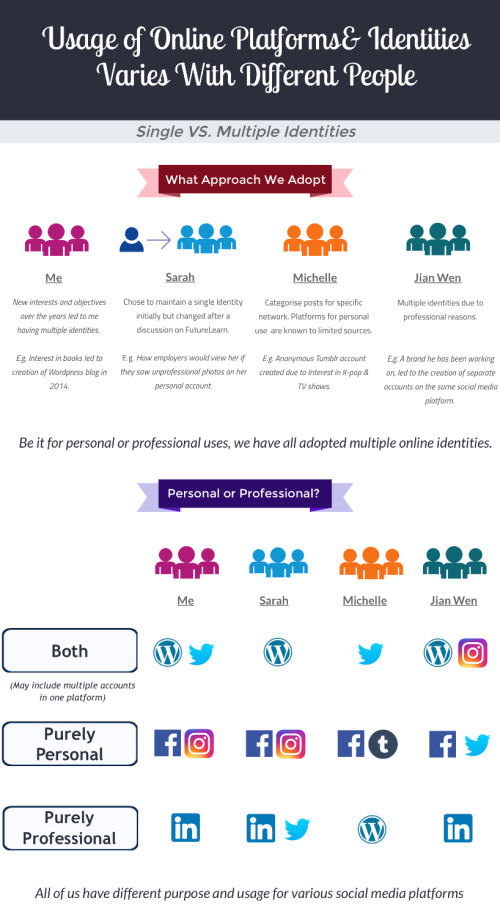
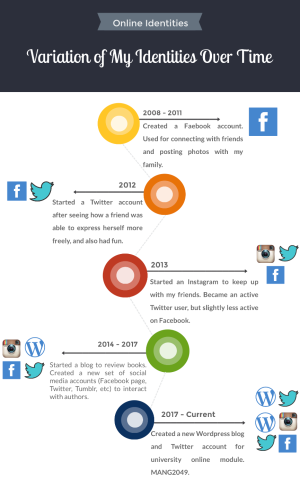
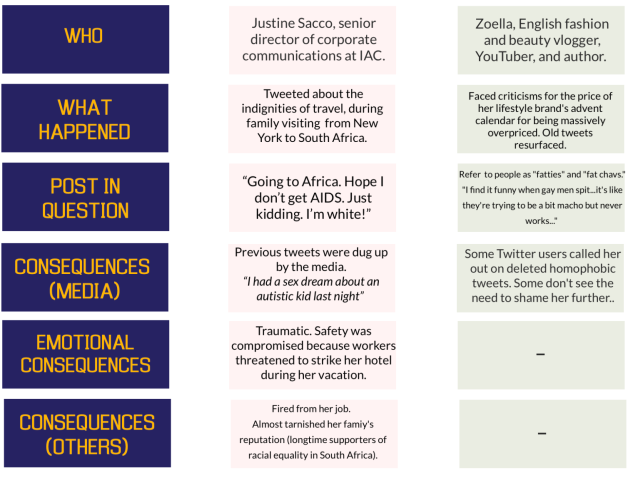
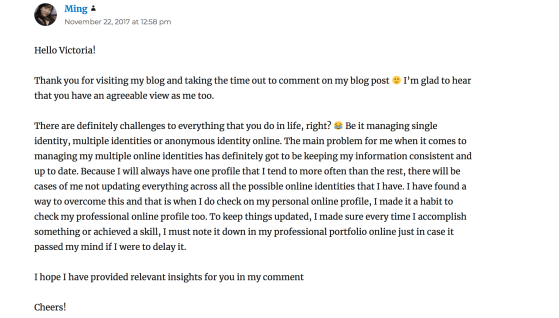
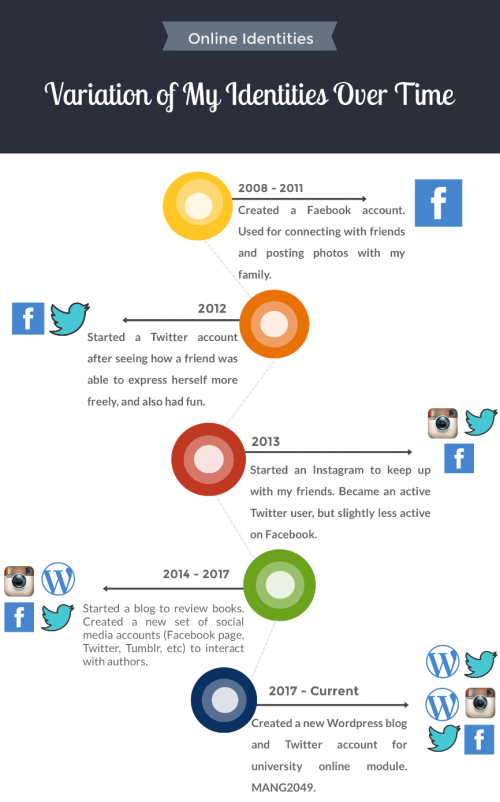
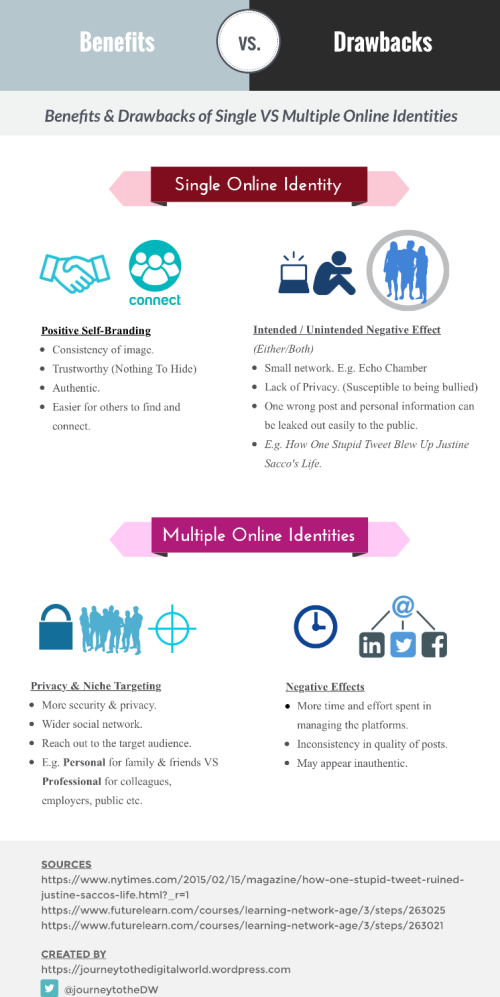
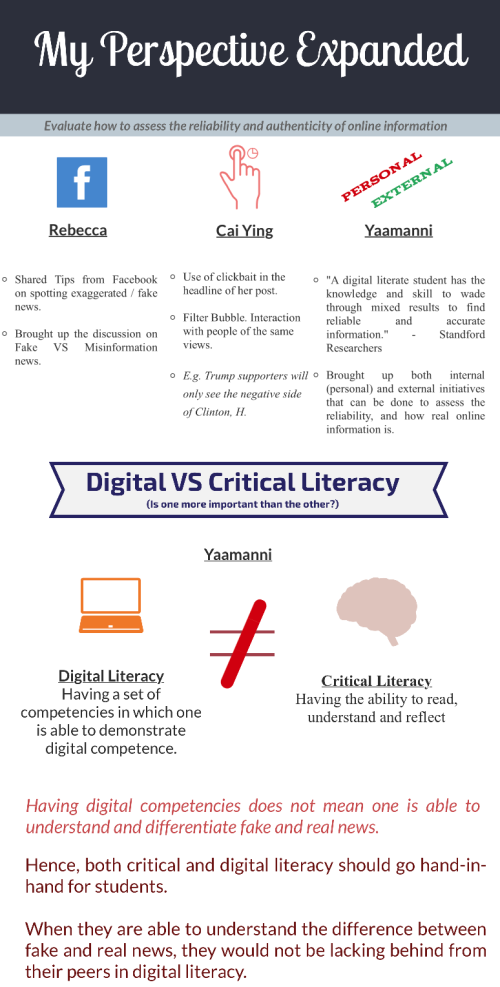
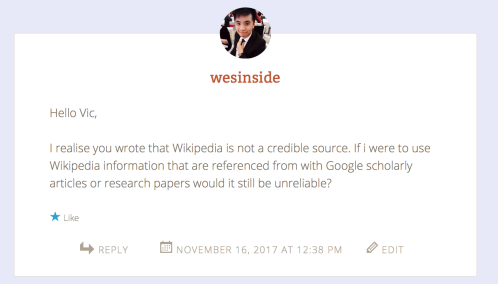
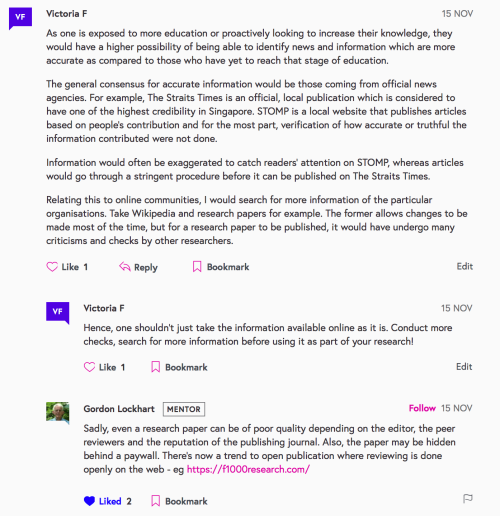
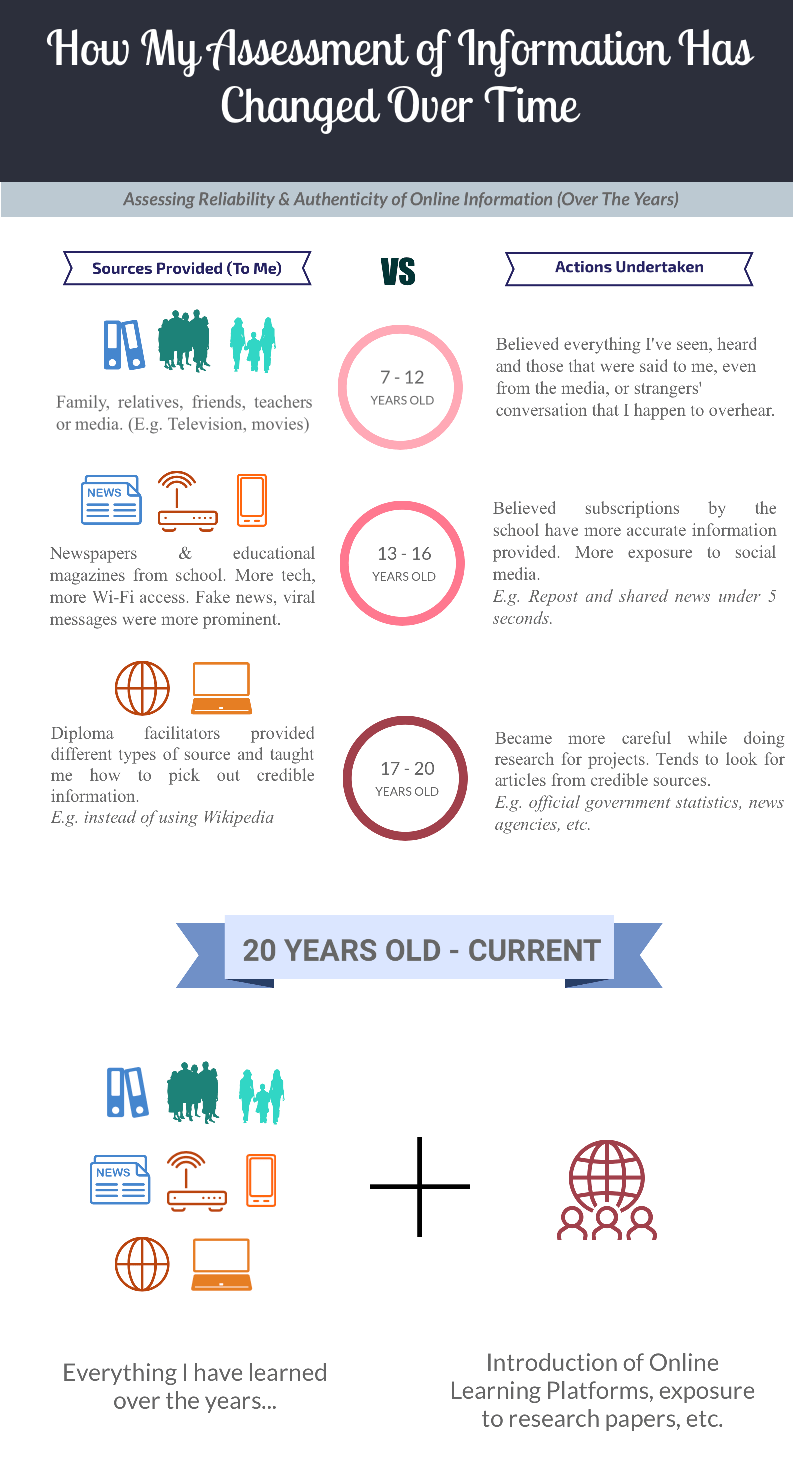

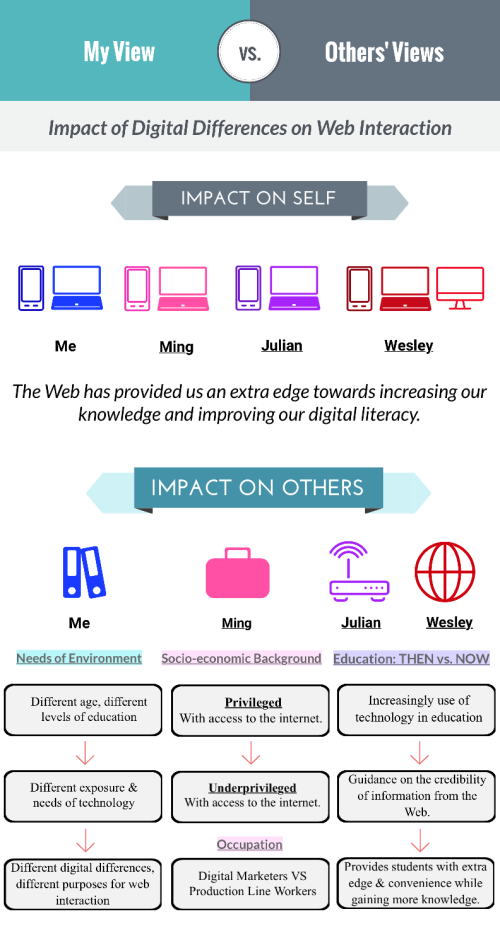 Source: Self-Produced via
Source: Self-Produced via 